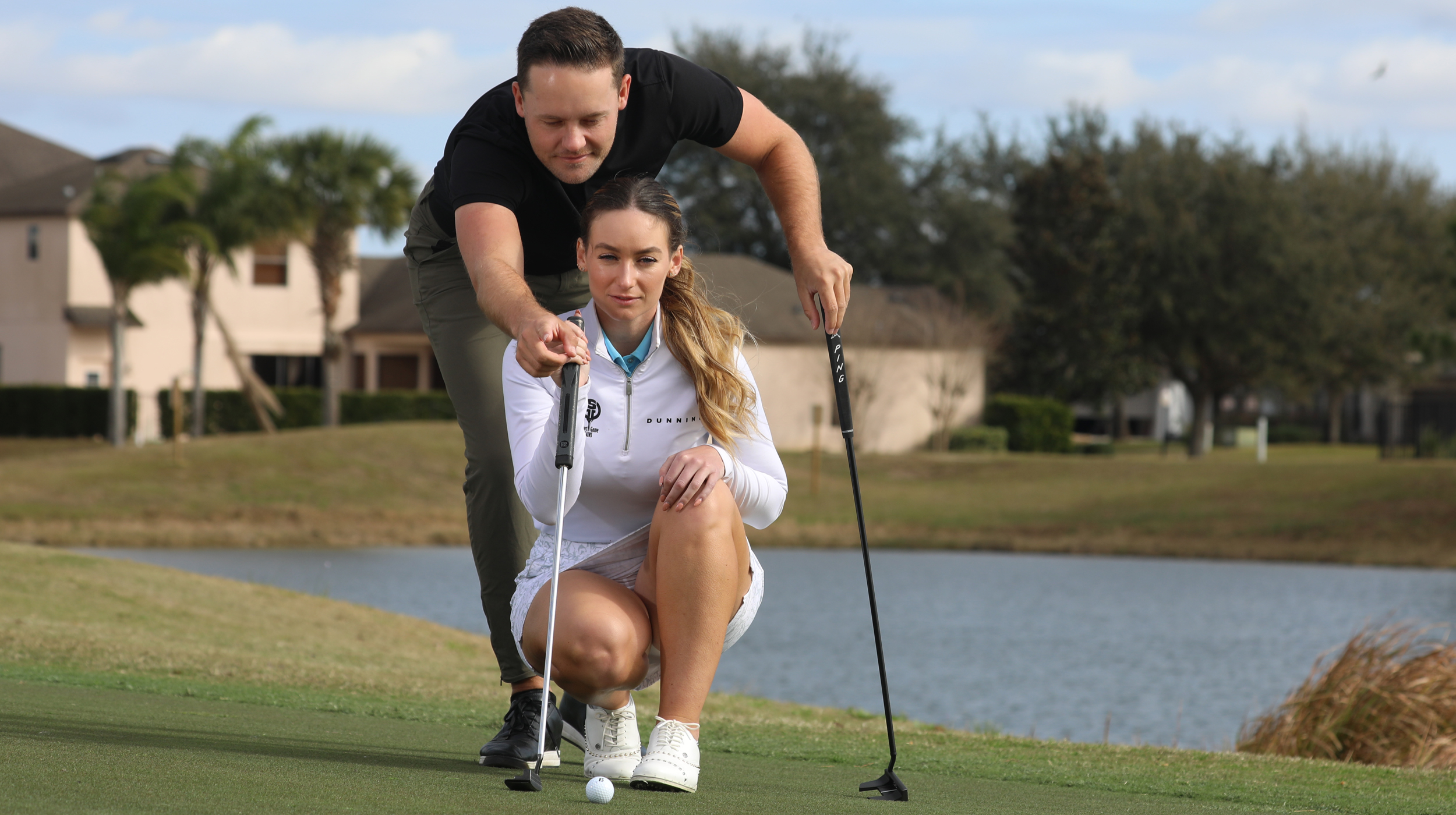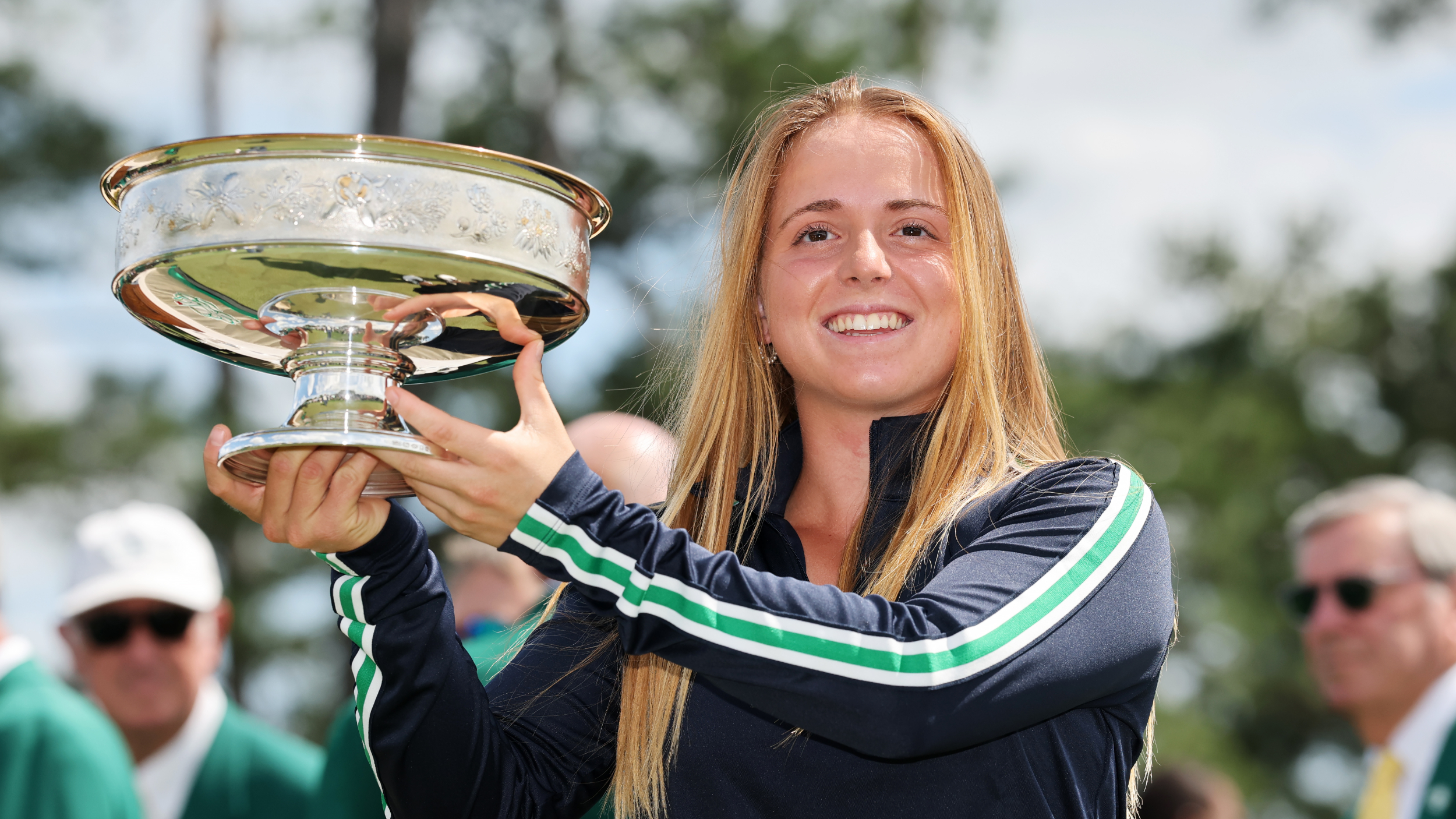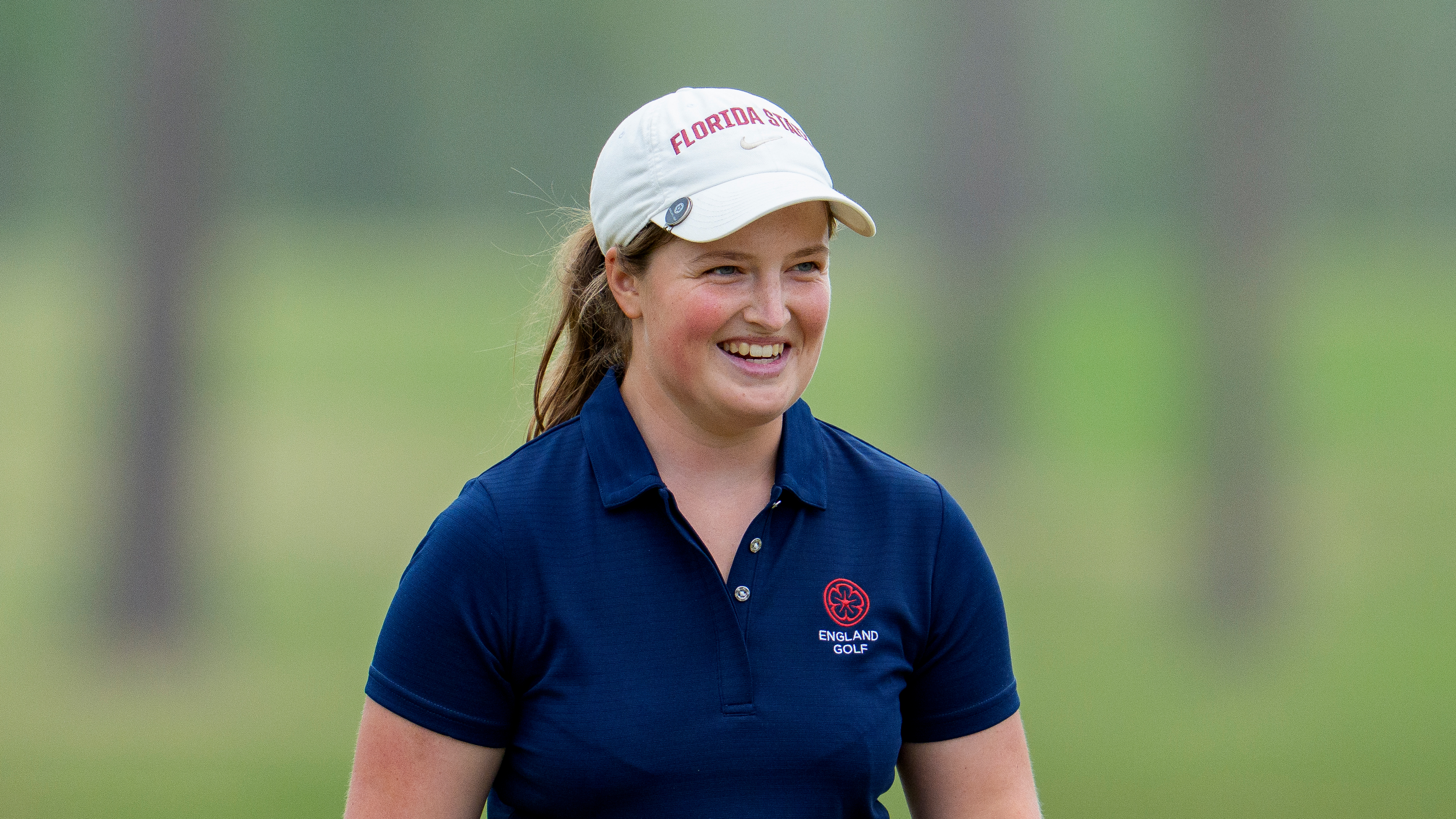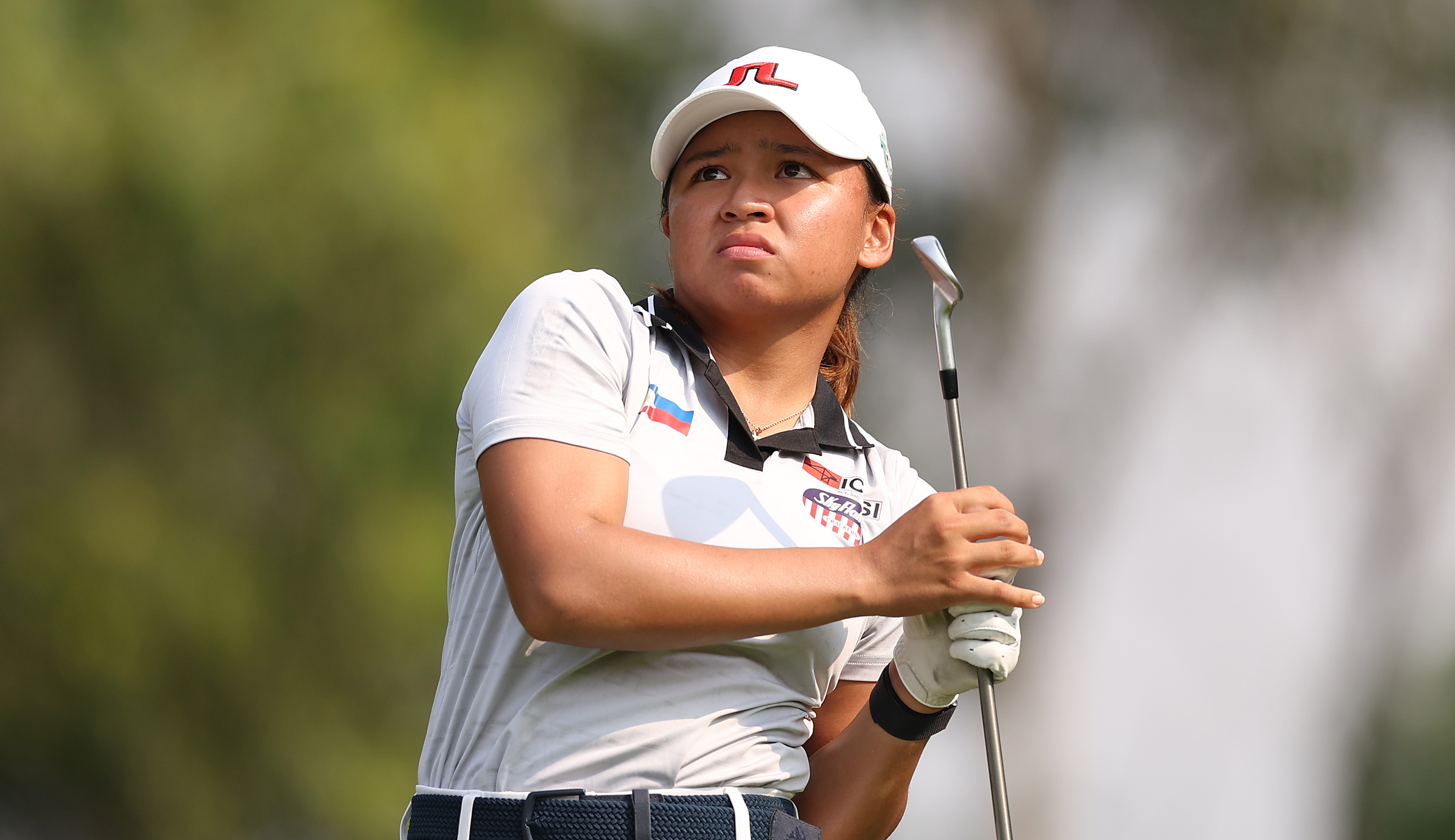'No Matter Your Ability, The Emotional Toll Of Thinking About How Much Every Single Event Is Costing You Wears On Every Player The Same' - Hannah Gregg On The Financial Strains Of Pro Golf
Hannah Gregg is an American professional golfer who has just earned playing privileges on the Ladies European Tour - but even now, making ends meet is no picnic...


With all of the talk about the mind-boggling amount of money in professional golf these days, it seems almost incomprehensible that anyone near the top of the sport would be struggling to make ends meet.
But below the glitz and the glam of the PGA Tour and LIV Golf League, and even the comfortable arrangements on the Korn Ferry Tour and DP World Tour, players have to think very carefully about what they spend their money on - and those considerations are only heightened in the women's game.
Even those LPGA Tour players who only make the cut at events with the smaller prize purses might earn just enough money to cover their total expenses for the week. And with the lack of finance not trickling down to the feeder tours, it can make reaching the top level extremely difficult indeed.
Someone who knows the strains of this task better than most is American professional, Hannah Gregg. The Arizona-based player previously detailed the cost of getting to and through Q-School on the Ladies European Tour in a video on her social media platforms, explaining that even the winner of the whole event may not have broken even.
A product of the Symetra and Epson Tours, Gregg reached the final stage of LET Q-School to earn playing privileges for 2024 and is closer than ever to reaching her dream of playing LPGA Tour golf. But while her sponsorship deals and online content creation will prop her up financially for the time being, Gregg admitted the stress of floating around the break-even line for so long really puts pressure on people, no matter their ability.
She said: "It doesn't matter if you're a great player or not, the emotional toll of thinking about how much every single tournament is costing you - especially if you don't have funding or you're working in a pro shop or something and kind of scraping together that money. It really does wear on everyone the same.
"I see there's always three or four players every year that just fall out of love with it, and that could be because they just don't like it anymore, but it's pretty rare that you see someone with unlimited funding fall out of love with it and just get overwhelmed by the stress."
Get the Golf Monthly Newsletter
Subscribe to the Golf Monthly newsletter to stay up to date with all the latest tour news, equipment news, reviews, head-to-heads and buyer’s guides from our team of experienced experts.
Gregg's boyfriend and caddie, Fred Lindblom is a short-game coach and founder of Short Game Gains - and the Swede echoed his partner's sentiments around some extremely talented players throwing in the towel due to circumstances outside of their control.
Lindblom said: "I have a couple of friends that definitely definitely had enough and wanted to kind of get a more stable life because, in the end, you put everything on pause - family, careers, everything - for professional golf. Because after a couple years, when you don't make it you pretty much start at zero, right? I probably wouldn't name names, but there's definitely people where it's like: "wow that guy quit?! He's way better than I am."

Hannah Gregg and her boyfriend and caddie, Fred Lindblom
Gregg believes the margins in talent at the top are so thin, sometimes a small change in circumstance or one bad result can spell the end for a player who could have reached the top.
She said: "I think the other thing is, when you get tour status, everyone is so talented. It's like anyone you meet you think could make it at any time. So when anyone quits at our level we're like, that's a bummer."
The 28-year-old went on to point out that most individual players are very similar to new businesses in that making a profit is very unlikely for the first few years and, as a result, some don't make it off the ground and realise their potential.
She said: "I actually wrote an article my senior year in college about how I thought golfers were treating their first few years like a startup. And it's totally normal for startups to go do multiple rounds of funding and never be profitable and just run super lean and maybe not have the best business model for the first for years. That's just common in the business world, and then when people look at many tour golfers, they're like, if you haven't made money after two years like you should just give up."
Lindblom highlighted the career paths of his fellow countryman, Ludvig Aberg and American Eric Cole as two very different stories about how long it can take a professional golfer to reach the top.
Lindblom said: "Look at Eric Cole, the PGA Tour Rookie of the Year, look at his career. I mean, I think it took him 15 years to make a profit. In 15 years, finally, he made it through the Korn Ferry Tour. But before that he didn't make money playing golf. Or not enough to have a great life, I can promise you. So there's always a handful of Ludvig Abergs and other people where they're just that good, but think about it. That might be one per year."

For Gregg and the rest of her peers hoping to forge a career out of pro golf, being able to cope with the potentially crippling expenses of travelling around the world to play will likely be a significant factor in deciding whether they make it or not.
"It was shocking to me that they didn't pay expenses for anyone on the PGA tour before, but they have that 500,000 stipend now," she said. "We don't have anything like that on the women's side, obviously, and the expenses are what kills you."
Lindblom continued: "The first five or six events on the LET, they're literally continent-hopping. You're jumping back and forth between the US, Australia, and Europe. It's pretty crazy. So the expenses stack up really quickly.
"We had Scott Stallings here for a couple of days, PGA Tour player, and he was complaining about his schedule going on in the US. It was like "Hey, listen to this. How about going to Kenya, Florida, Australia, New Zealand, and then South Africa in the beginning of the year?" He's like "what?" and his purses are a little bit bigger than Hannah's. It's unbelievable, the schedule and the travel expenses on the LET."
To help ease the burden of travel expenses in particular from her Arizona home, Gregg revealed she took part in a crowdfunding scheme recently called 'Carry' where people were able to buy shares in her and nine other players. The idea was that the golfer is handed enough money to pursue their dream while the 'investors' would earn something back once the player earned a certain figure.
Gregg said: "It's a really cool system and it's helped me a ton. I know for a fact I couldn't have played all the Epson events I did last year if I didn't have Carry."
Having received her share of $50,000 between two cohorts of almost 20 players, Gregg was able to reach this point in her career and play in LET Q-School, an event which offered prize money for the top few finishers - something that is not the case on other tours.
Gregg said: "LET is the only women's Q-school where they even have a purse. So I love that, that was a little bit of a surprise to me that there was anything to play for at finals because that's never normally the case."

Jonny Leighfield is our Staff News Writer who joined Golf Monthly just in time for the 2023 Solheim Cup and Ryder Cup. He graduated from the University of Brighton with a degree in Sport Journalism in 2017 and spent almost five years as the sole sports reporter at his local newspaper. During his time with Golf Monthly, Jonny has interviewed several stars of the game, including Robert MacIntyre, Ian Poulter, Lee Westwood, and Joaquin Niemann. An improving golfer himself, Jonny enjoys learning as much about the game as he can and recently reached his Handicap goal of 18 for the first time. He attended both the 150th and 151st Open Championships and dreams of attending The Masters one day.
-
 Watch The Masters Round Three: Live Streams, TV Coverage, Start Time For Today's Play
Watch The Masters Round Three: Live Streams, TV Coverage, Start Time For Today's PlayHow to watch The Masters on Saturday April 13, with all the information on live streams, TV broadcasts, and free coverage for Round Three at Augusta National.
By Patrick Fletcher Published
-
 14 Big Names Who Missed The Cut At The Masters
14 Big Names Who Missed The Cut At The MastersAn exciting prospect is in-store over the weekend at The Masters, where a number of players missed the cut at Augusta National
By Matt Cradock Published
-
 Callaway REVA Rise: New Women's Clubs Unleashed!
Callaway REVA Rise: New Women's Clubs Unleashed!Callaway has released REVA Rise, the latest evolution of the Reva line of clubs designed specifically for women
By Alison Root Published
-
 Carla Bernat Escuder Narrowly Beats Asterisk Talley To Augusta National Women's Amateur Title
Carla Bernat Escuder Narrowly Beats Asterisk Talley To Augusta National Women's Amateur TitleCarla Bernat Escuder became the first Spaniard to win the Augusta National Women's Amateur
By Mike Hall Published
-
 Augusta National Women's Amateur Final Round Tee Times 2025
Augusta National Women's Amateur Final Round Tee Times 2025Defending champion Lottie Woad and USA's Kiara Romero will start as co-leaders in the final group of the Augusta National Women's Amateur on Saturday
By Jonny Leighfield Published
-
 Defending Champion Lottie Woad In Prime Position For ANWA Title Defence As Several Big Names Miss The Cut
Defending Champion Lottie Woad In Prime Position For ANWA Title Defence As Several Big Names Miss The CutHeading into the final round at Augusta National Golf Club, England's Lottie Woad co-leads the field 12 months on from her dramatic comeback victory
By Jonny Leighfield Published
-
 Augusta National Women’s Amateur Winners: Where Are They Now?
Augusta National Women’s Amateur Winners: Where Are They Now?The Augusta National Women's Amateur was first played in 2019 and, since then, a number of the tournament's winners have gone on to forge superb careers
By Matt Cradock Published
-
 Augusta National Women's Amateur 2025 Tee Times - Round One
Augusta National Women's Amateur 2025 Tee Times - Round OneLottie Woad returns to defend her Augusta National Women's Amateur title, with the Amateur World No.1 getting her first round underway alongside Amateur World No.2 Jasmine Koo
By Matt Cradock Published
-
 Rianne Malixi Withdraws From Augusta National Women's Amateur With Back Injury
Rianne Malixi Withdraws From Augusta National Women's Amateur With Back InjuryRianne Malixi had been among the favorites going into the Augusta National Women's Amateur, but the US Women’s Amateur champion has been forced to withdraw due to injury
By Matt Cradock Published
-
 How To Watch Augusta National Women’s Amateur: Live Streams, TV Channels, Schedule
How To Watch Augusta National Women’s Amateur: Live Streams, TV Channels, ScheduleThis year will be the sixth running of the event, with 23 nationalities competing and with the final round played around Augusta National's iconic course.
By Roderick Easdale Last updated